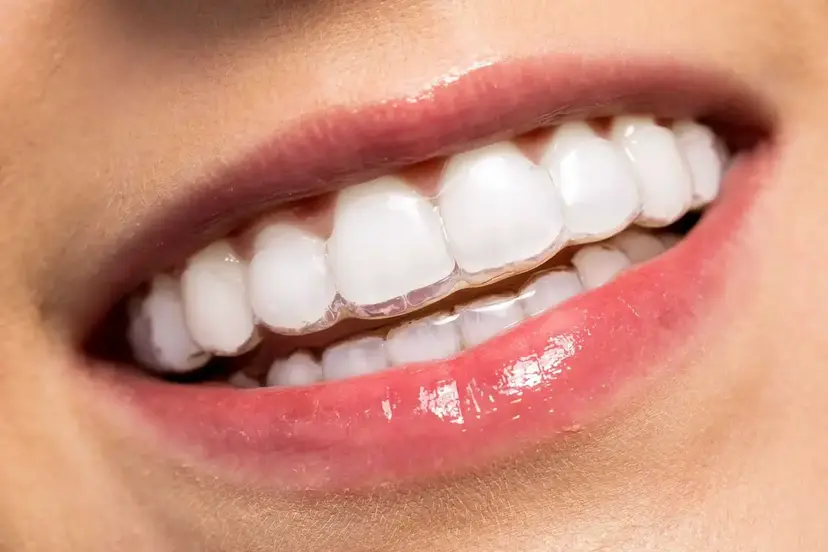MakeO blog
A radiant smile is more than just an aesthetic delight. It's a mirror to an individual's overall health. For ages, traditional Indian wisdom has stressed on the importance of oral hygiene. And now, science confirms that your oral health is a window to your general health.
Issues with your oral health can lead to other complications, having repercussions beyond your mouth. Among the concerns arising from poor oral hygiene is the impact on one's lungs. Read on to find out how the germs in your mouth might be affecting you more than you think.
What is Oral Bacteria?
Every mouth is a breeding ground for microorganisms, a complex ecosystem where innumerable bacteria coexist. While many of these bacteria are harmless, some can cause problems, especially if your oral health isn't up to par. This imbalance can lead to oral bacterial infections, cavities, and other dental issues.
Do Oral Bacterial Infections Affect Your Lungs?
Indeed, the connection between oral bacterial infections and lung health is both intricate and concerning. The germs residing in our mouths don’t stay in the same place; they can journey to other parts of the body, including our lungs, posing various health risks. Here are some ways in which oral bacteria can affect your lungs:
- Pneumonia
One of the most common respiratory diseases, pneumonia can have its roots in the bacteria that originally populate the mouth. When these bacteria are aspirated into the lungs, they can cause infection that can lead to pneumonia. Common symptoms of pneumonia are fever, cough with phlegm, and difficulty in breathing.
- Chronic Obstructive Pulmonary Disease (COPD)
A link between COPD and oral health is understood through multiple research studies. Poor oral hygiene can lead to an overgrowth of harmful bacteria. When these bacteria reach the lungs, they can cause chronic inflammatory conditions like COPD. This can worsen the disease's symptoms and cause frequent flare-ups.
- Aspiration Pneumonia
Distinct from the typical bacterial pneumonia, aspiration pneumonia is particularly worrisome for elderly individuals or those with swallowing disorders. Here, instead of germs being inhaled, they're directly aspirated into the lungs due to choking on food, drink, or saliva. The germs on the mouth, especially when overpopulated with harmful bacteria, can cause severe inflammation and infection in the lungs.
- Periodontal Disease and Lung Health
Chronic periodontal disease, or gum disease, increases the reservoir of harmful bacteria in the mouth. There is emerging evidence to suggest that individuals with periodontal disease might be at a heightened risk for developing respiratory conditions. The bacteria from inflamed gums can be breathed into the lungs, adding to the risk.
- Aggravating Other Respiratory Conditions
Apart from causing diseases, the harmful bacteria from oral infections can exacerbate other respiratory conditions. For instance, asthma patients might experience worsened symptoms or frequent attacks due to increased bacterial load entering the lungs.
Effects of Bad Oral Bacteria Through Breathing
When you breathe, the germs on your mouth can get a direct ticket to your lungs. Some effects include:
- Inflammation
Breathing in harmful bacteria can instigate an inflammatory response in the lungs. This inflammation can make pre-existing respiratory issues worse, such as asthma or chronic bronchitis, and even lead to the development of new conditions.
- Exacerbation of Asthma
Asthma patients already have sensitive airways. The introduction of bad bacteria from the mouth can irritate these airways further, possibly triggering asthma attacks more frequently or intensifying their severity.
- Recurring Respiratory Infections
Continuous inhalation of harmful oral bacteria can make one more prone to respiratory infections. This might mean catching a cold more often or suffering from bronchial infections that linger.
- Aggravated COPD Symptoms
For those with Chronic Obstructive Pulmonary Disease (COPD), inhaling bad bacteria can lead to an increase in COPD exacerbations. This can manifest as prolonged coughing spells, increased mucus production, or heightened shortness of breath.
- Enhanced Risk of Pneumonia
Especially in older adults or those with a weakened immune system, the risk of developing pneumonia increases with the regular inhalation of bad bacteria. The bacteria can settle in the air sacs of the lungs, leading to an infection that causes the sacs to become inflamed and filled with pus.
- Impaired Lung Function
Over time, the persistent presence of harmful oral bacteria in the lungs can negatively impact overall lung function. This could mean decreased stamina, difficulty in catching one’s breath, or a consistent feeling of tiredness.
- Resistant Bacterial Strains
As harmful oral bacteria continually enter the lungs, there's a risk that some might develop resistance to standard antibiotic treatments. This can make treating respiratory infections caused by these bacteria more challenging.
Tips to Prevent Bad Oral Bacteria in Your Mouth
- Brush your teeth twice daily using makeO toothsi electro and a fluoride toothpaste.
- Use a mouthrinse to reduce the number of bacteria in the mouth.
- Floss at least once a day with Floss X smart water flosser to remove bacteria from between teeth.
- Visit your dentist regularly for check-ups and routine dental-cleaning.
- You must eat a balanced diet and limit the intake of sugary foods and drinks.
- Consider products like makeO toothsi shine and care combo for excellent oral hygiene.
Conclusion
Your mouth is a gateway, not just for nutrition, but also for the myriad bacteria residing there. It's crucial for Indian men and women to understand the significant impacts of oral health on overall well-being. With increasing awareness and the right tools like makeO toothsi dental care products, we can ensure that our smiles remain not just beautiful from the outside but also from the inside.
From smart electric toothbrushes,water flossers to toothsi smile combo teeth whitening kits and retainers, makeO offers them all and more!
FAQs:
How do the germs in my mouth reach my lungs?
Through activities like breathing, coughing, or choking, the germs in the mouth can sometimes travel to your lungs and cause serious respiratory ailments.
Can good oral hygiene reduce the risk of lung diseases?
Yes, maintaining a clean oral flora can reduce the risk of transporting harmful bacteria to the lungs. This in turn will reduce your chances of developing lung diseases caused by oral bacteria.
Are the germs on my mouth different from those inside?
While some bacteria are common both inside and on the mouth, the external surface might harbour additional environmental bacteria.
How often should I get a dental check-up?
For most people, a check-up every six months can help in identifying and addressing potential oral bacterial infections. However, it is best to consult your dentist and ask him or her to suggest to you how frequently you must show up for a dental examination.
Do products like makeO toothsi dental care help?
Indeed, using reliable and premium-quality dental care products like makeO toothsi dental care products can assist in maintaining a healthy oral environment, thus reducing risks associated with bacteria in the mouth.
related categories
Related articles

Types of Braces: Removable vs Fixed Braces, Which is Right For You?

This Diwali, Smile Bright With makeO Teeth Whitening Kit

Dr. Pravin Shetty: Pioneer in Lingual Orthodontics & Innovative Smile Solutions
How do I Know I’m the Right Candidate for makeO toothsi Teeth Aligners?

